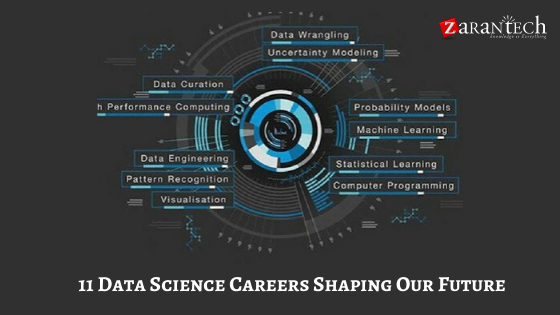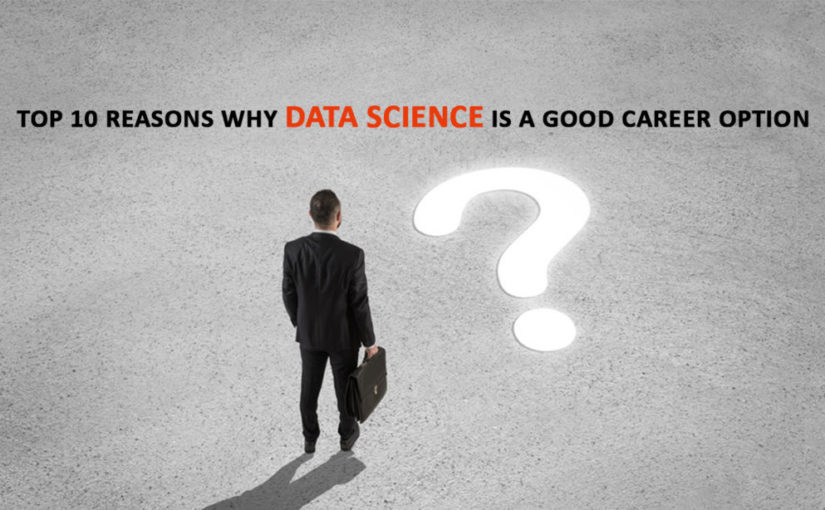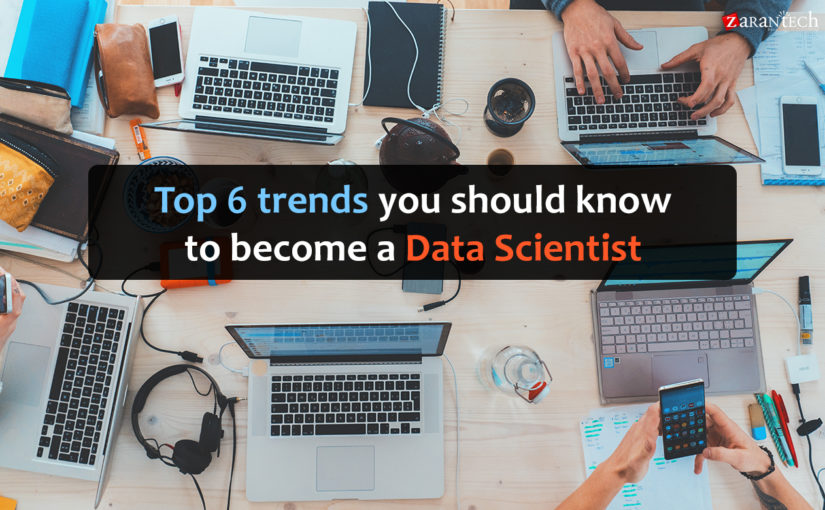11 Data Science Careers Shaping Our Future
Category: Data Science Posted:Jul 24, 2020 By: Robert
For 4 years straight, the data scientist role has been called the top job role in the U.S. by Glassdoor. What’s even more, the U.S. Bureau of Labor Statistics reports that the need for data science skills will certainly drive a 27.9 percent increase in employment in the field by 2026. Not only is there a huge demand, but there is also a recognizable shortage of certified data scientists.
Daniel Gutierrez, the managing editor of insideBIGDATA, informed Forbes, “Words on the street there’s most definitely a lack of people that can do data scientific research.” If you have a passion for computers, mathematics, and discovering responses via data evaluation, then earning an advanced degree in data science or data analytics should be your next step.
What is Data Science?
Dr. Martin Schedlbauer, a data science professor at Northeastern University, says that data science is used by “computing experts who have the skills for collecting, shaping, storing, managing and analyzing data [as an] crucial resource for organizations to allow for data-driven decision making.” Virtually every communication with modern technology consists of data– your Amazon.com acquisitions, Facebook feed, Netflix referrals, and even the face recognition required to sign in to your phone.
Amazon is a prime example of how handy data collection can be for ordinary buyers. Amazon.com’s data sets remember what you have purchased, how much you’ve paid, and also what you have searched. This permits Amazon to tailor its succeeding homepage sights to fit your needs. For example, if you browse camping gear, infant products, and grocery stores, Amazon.com will certainly not spam you with advertisements or item recommendations for senior citizen vitamins. Instead, you are going to see things that might benefit you, such as a compact camping high chair for babies.
Likewise, data science can be useful for reminding you of regular acquisitions. If you buy diapers every month, as an example, you might see a tactically positioned coupon or deal around the same time monthly. This use of data is expected to function as a trigger, prompting you to think, “I just remembered I require to purchase diapers, and I should purchase them now because they are on sale.”
Data science benefits both companies and customers alike. McKinsey Global Institute found that big data can boost a retailer’s profit margin by 60 percent, and “services by personal-location information can enable consumers to capture $600 billion in economic excess,” meaning they can acquire a product or service for less than they were expecting. For instance, if you allocated $7,500 to buy a jacuzzi and later found the precise model you desired for $6,000, your economic surplus would certainly be $1,500. Data Science can simultaneously enhance a retailer’s productivity and save customers money, which is a win-win for a healthy economic situation.
Data Science Is Helping the Future
Data science makes it possible for sellers to influence our purchasing habits, but the significance of collecting data is much more.
Data science can enhance public health through wearable trackers that encourage individuals to embrace a healthier lifestyle and also can educate people about potential health and wellness problems. Data can additionally enhance diagnostic accuracy, speed up locating cures for certain diseases, or even stop the spread of a virus. When the Ebola infection episode hit West Africa in 2014, researchers were able to track the spread of the illness and forecast the areas most at risk to the ailment. This information helped health and wellness officials get in front of the outbreak and avoid it from becoming a world epidemic.
Data science has vital applications across most industries. For example, data is utilized by farmers for efficient food growth and distribution, by food distributors to reduce food waste, and by not-for-profit companies to increase fundraising efforts and forecast financing demands.
In a 2015 speech, Financial expert and also Freakonomics writer Steven Levitt stated that Chief executive officers know they are missing out on the significance of Big Data, but they do not have the ideal teams in position to execute the skills. He claims, “I do believe still that the combination of corporations with companies’ big data and randomization […] is going to go to the center of what economics is and what various other social sciences are going to be.”
Pursuing a career in data science is a wise step, not just because it is trendy and pays well, but, because data may be the pivot factor on which the entire economy turns.
In-Demand Data Science Careers
Data science experts are needed in every job sector not just in technology. The five biggest tech companies such as Google, Amazon, Apple, Microsoft, and Facebook– only employ half of one percent of the U.S. employees. However to break into these high-paying, in-demand roles– an advanced education is required.
“Data scientists are highly educated– 88 percent have at least a master’s degree and 46 percent have PhDs– and while there are notable exceptions, a very strong educational background is usually required to develop the depth of knowledge necessary to be a data scientist,” reports KDnuggets, a leading site on Big Data.
Here are some of the leading data science careers you can break into with an advanced degree.
1. Data Scientist
Average Salary: $139,840.
Typical Job Requirements: Find, clean, and organize data for companies. Data scientists must be able to analyze large amounts of complex raw and processed information to find patterns that will benefit an organization and help drive strategic business decisions. Compared to data analysts, data scientists are much more technical.
2. Machine Learning Engineer
Average Salary: $114,826.
Typical Job Requirements: Machine learning engineers create data funnels and deliver software solutions. They typically need strong statistics and programming skills, and knowledge of software engineering. In addition to designing and building machine learning systems, they are also responsible for running tests and experiments to monitor the performance and functionality of such systems.
3. Machine Learning Scientist
Average Salary: $114,121.
Typical Job Requirements: Research new data approaches and algorithms to be used in adaptive systems including supervised, unsupervised, and deep learning techniques. Machine learning scientists often go by titles like Research Scientist or Research Engineer.
4. Applications Architect
Average Salary: $113,757.
Typical Job Requirements: Track the behavior of applications used within a business and how they interact with each other and with users. Applications architects are focused on designing the architecture of applications and building components like user interface and infrastructure.
5. Enterprise Architect
Average Salary: $110,663.
Typical Job Requirements: An enterprise architect is responsible for aligning an organization’s strategy with the technology needed to execute its objectives. To do so, they must have a complete understanding of the business and its technology needs to design the systems architecture required to meet those needs.
6. Data Architect
Average Salary: $108,278.
Typical Job Requirements: Ensure data solutions are built for performance and design analytics applications for multiple platforms. In addition to creating new database systems, data architects often find ways to improve the performance and functionality of existing systems and provide access to database administrators and analysts.
7. Infrastructure Architect
Average Salary: $107,309.
Typical Job Requirements: Ensure that all business systems are working optimally and can support the development of new technologies and system requirements. A similar job title is Cloud Infrastructure Architect, who oversees a company’s cloud computing strategy.
8. Data Engineer
Average Salary: $102,864.
Typical Job Requirements: Perform batch processing or real-time processing on gathered and stored data. Data engineers are also responsible for building and maintaining data pipelines which create a robust and interconnected data ecosystem within an organization, making data accessible for data scientists.
9. Business Intelligence (BI) Developer
Average Salary: $81,514.
Typical Job Requirements: BI developers design and develop strategies to assist business users in quickly finding the information they need to make better business decisions. Extremely data-savvy, they use BI tools or develop custom BI analytic applications to facilitate the end-users’ understanding of their systems.
10. Statistician
Average Salary: $76,884.
Typical Job Requirements: Statisticians work to collect, analyze, and interpret data to identify trends and relationships which can be used to inform organizational decision-making. Additionally, the usual responsibilities of statisticians include design data collection processes, communicating findings to stakeholders, and advising organizational strategy.
11. Data Analyst
Average Salary: $62, 453.
Typical Job Requirements: Transform and manipulate large data sets to suit the desired analysis for companies. For many companies, this role can also include tracking web analytics and analyzing A/B testing. Data analysts also aid in the decision-making process by preparing reports for organizational leaders which effectively communicate trends and insights gleaned from their analysis.
Data Scientists Are in Constant Demand
Dr. Schedlbauer concludes that while some data science jobs will mostly be automated within the next 10 years, “there is a clear need for professionals who understand the business need, can devise a data-oriented solution, and then implement that solution.”.
Data Science experts are needed in almost every field, from government security to dating apps. Millions of businesses and government departments rely on big data to succeed and better serve their customers. Data science careers are in high demand and this trend will not be slowing down any time soon, if ever.
If you want to break into the field of data science, there are several ways you can prepare yourself to take on these challenging yet exciting roles. Perhaps most importantly, you will need to impress future employers by demonstrating your expertise and previous work experience. One such way you can build those skills and experience is to pursue an advanced degree program in your area of interest.
Bottom line
ZaranTech, for example, offers an online Data Science Master Program program which is designed to develop the skills that employers are seeking. This program provides trainees with the opportunity to participate in co-ops and experiential learning experiences, allowing them to build hands-on experience before acquiring the certificate. Once you have considered factors like your personal background, interests, and career aspirations, you will be able to determine which certification program is right for you and take the next step towards achieving your goals.
For more such engaging and informative articles, feel free to visit our website.
Happy Learning!





 99999999 (Toll Free)
99999999 (Toll Free)  +91 9999999
+91 9999999